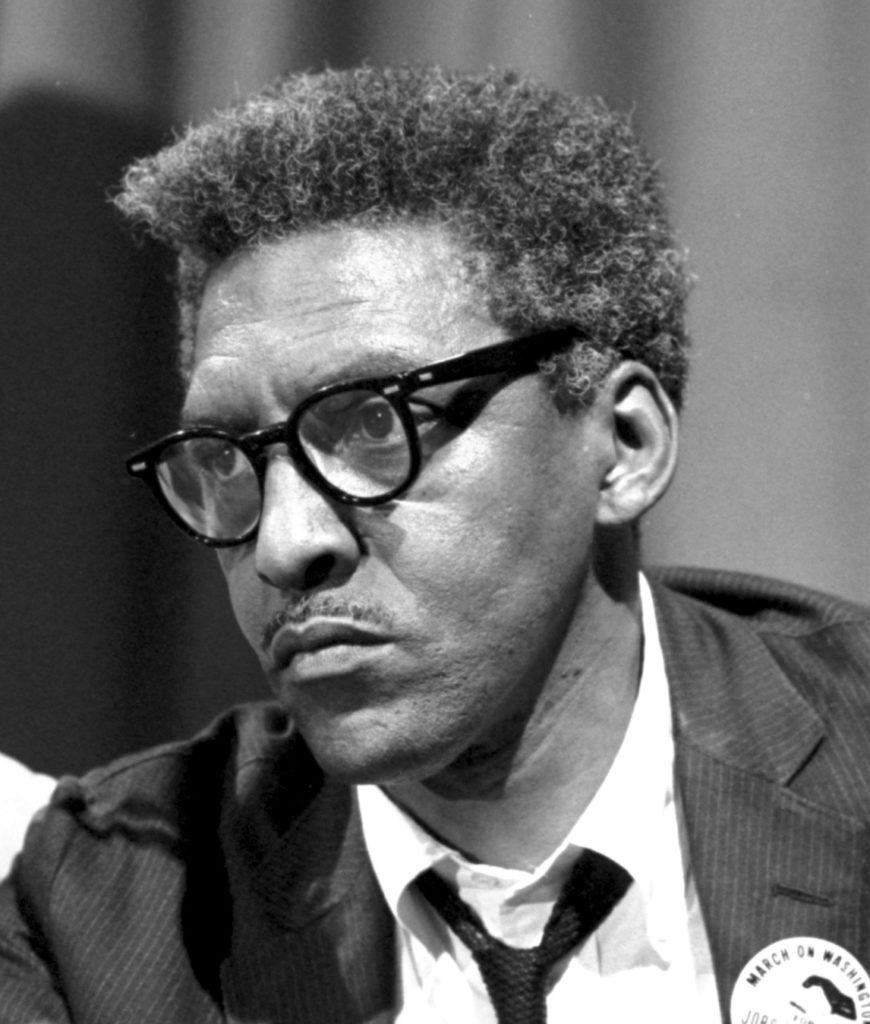Hero #115: Bayard Rustin … (02/08/16)
Bayard Rustin was an American leader in the social movements for civil rights, peace, and gay rights. He openly championed non-violence as a member of the Fellowship of Reconciliation and the War Resisters League. He also collaborated on the March on Washington Movement in 1941 to press for an end to discrimination in employment. He was a leading activist of the early Civil Rights Movement, helping to initiate a 1947 Freedom Ride to challenge, via civil disobedience, the racial segregation issue related to interstate busing. He recognized Martin Luther King, Jr.’s message, and helped to organize the Southern Christian Leadership Conference to strengthen King’s leadership. Rustin promoted the philosophy of nonviolence and the practices of nonviolent resistance, which he had observed while working with Mahatma Gandhi’s movement in India, and thereafter helped inform Martin Luther King, Jr. about the patent effectiveness of nonviolence.
Rustin became a leading strategist of the Civil Rights Movement from 1955 to 1968. He was the chief organizer of the 1963 March on Washington for Jobs and Freedom, and he also influenced young activists, such as Tom Kahn and Stokely Carmichael, in organizations such as the Congress on Racial Equality and the Student Nonviolent Coordinating Committee.
Rustin later became head of the AFL–CIO’s A. Philip Randolph Institute, which promoted the integration of formerly all-white unions and promoted the unionization of African Americans. The Institute under Rustin’s leadership also advanced and campaigned A Freedom Budget for All Americans, a treatise linking the concepts of racial justice with economic justice. Supported by over 200 prominent civil-rights activists, trade unionists, religious leaders, academics and others, it outlined a plan to eliminate poverty and unemployment in the United States within a ten-year period. During the 1970s and 1980s, Rustin served on many humanitarian missions, including many that aided refugees from Vietnam and Cambodia. At the time of his death in 1987, he was on a humanitarian mission in Haiti.
“If we desire a just society without discrimination, then we must not discriminate against anyone in the process of building that society. If we desire a society that is democratic, then democracy must become a means as well as an end … The proof that one truly believes is in action … When an individual is protesting society’s refusal to acknowledge his dignity as a human being, his very act of protest confers dignity upon him … What we need in every bay and community is a group of angelic troublemakers.” ~ via Bayard Rustin





 ;
;